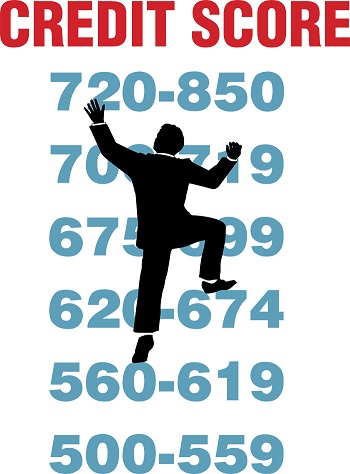Clean up your credit
Improve your job prospects and personal finances by being proactive
If you’ve recently considered making a large purchase or moving to a new home, you might have thought about your credit history. Whether you’re applying to rent an apartment or buy a home, or trying to obtain a position that requires a security clearance, you will need satisfactory credit.
But what if your credit isn’t up to par? Well, you don’t have to wallow in your credit woes. Begin your credit-repair journey by following these steps:
Understand what ‘good credit’ means
According to bankrate.com, the three major credit-reporting bureaus (Equifax, Experian and TransUnion) take into account:
- Your record of paying bills on time.
- How much you owe (especially how much of your available credit you are currently using).
- How long you have used credit (long history of clean credit works in your favor).
- The amount of credit you have applied for recently.
- The diversity of the types of loans you carry. Having a mix of revolving credit, installment loans and/or a mortgage is generally good, according to the bureaus.
Obtain your credit reports and old statements
The topic of consumer credit often causes anxiety. It’s important to remember that avoiding the issue doesn’t make it disappear. You must know where you are to develop a plan for where you’re going.

Thomas Nitzsche is a certified credit counselor at ClearPoint Credit Counseling Solutions, which has an office in Charlotte. He suggests that you get all of the materials you’ll need.
“Gather all the old statements you can find and then pull all three credit reports for free at www.annualcreditreport.com or by phone at 1-877-322-8228,” he says.
If it’s been awhile since you tracked your past-due bills, getting organized could be a large task, but it is crucial in order to navigate the process.
“Organization is a huge challenge for someone who decides to clean up their credit after a period of neglect,“ Nitzsche says. “Once you have the reports, go through them one by one. If you do not have billing statements, use the Internet to search the names of the collection agencies on the credit report to find their contact information. Be sure to check your state’s statute of limitations to see how long you are legally liable for the debt.
“Warning: Do not engage a collection agency unless you intend to pay the bill, as you can reset the statute of limitations on the debt by acknowledging the debt or making a payment.”
Get started as soon as possible
“Knowledge is power!” Nitzsche emphasizes. “ClearPoint University offers free online webinars that can help you pay down debt and improve credit.”
Avoid credit-repair scams
Some companies claim they can raise your credit score or purge negative credit entries. Nitzsche says consumers should proceed cautiously.
“Search the National Foundation for Credit Counseling for a nonprofit, accredited counseling agency and then check their other accreditations, such as BBB rating, and AICCCA (Association of Independent Consumer Credit Counseling Agencies) or COA (Council on Accreditation) memberships,” Nitzsche suggests.

Add your comment: